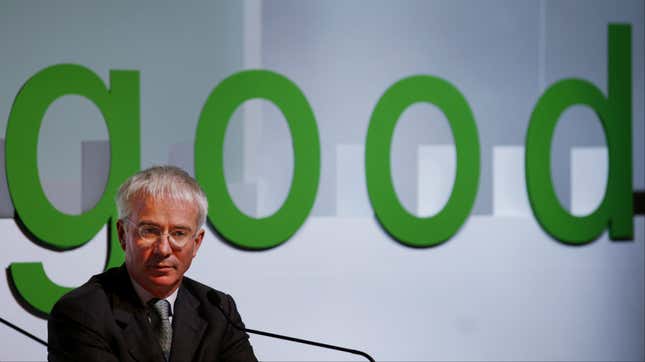
In the 1990s, traders in the Big Lychee, as expats living there call Hong Kong, used to nickname Standard Chartered the “banana skin bank”. Its focus on fast growing but chaotic Asian markets caused all sorts of accidents (paywall) that decade, including becoming embroiled in a $1 billion Indian share trading fraud and a bad loan pile up during the Asian crisis.
The bank has since done seriously well off rapid economic growth in China and India. But a trading update StanChart released today (pdf) carried a slight whiff of banana.
“Asian economies are showing signs of lower growth,” CEO Peter Sands said in a statement. He reassured investors that bad loan charges had fallen slightly in the last quarter. But then he tinkled a miniature alarm bell, adding: “We remain cautious given the slowdown in the macroeconomic environment.”
India, where StanChart has a big business, is seeing a steady rise in bad loans.
Meanwhile, the bank has just parted company with a top lending executive who extended a $1 billion loan to Indonesian tycoon Samin Tan, the chairman of troubled coal firm Bumi.
According to this Reuters report, StanChart head of leveraged finance syndication, Peter Kay, quit – and this really is worth quoting at length—because:
“Kay was tasked with distributing the $1 billion loan that the bank wholly underwrote almost a year ago on behalf of Tan’s Borneo Lumbung Energi after it bought a 23.8 percent stake in Bumi Plc from Indonesia’s Bakrie Group.
The size of the Borneo loan is a small fraction of the bank’s overall lending book, but is one of the single largest underwritten loans by any bank in Asia in 2011.
Standard Chartered has since been able to sell down only $230 million of the loan, leaving $770 million worth of risk on the UK-listed bank’s books.”
With any luck, StanChart’s loan books are looking rosier than the Bumi debacle suggests. Any more banana skin associations and shareholders with long memories could split.